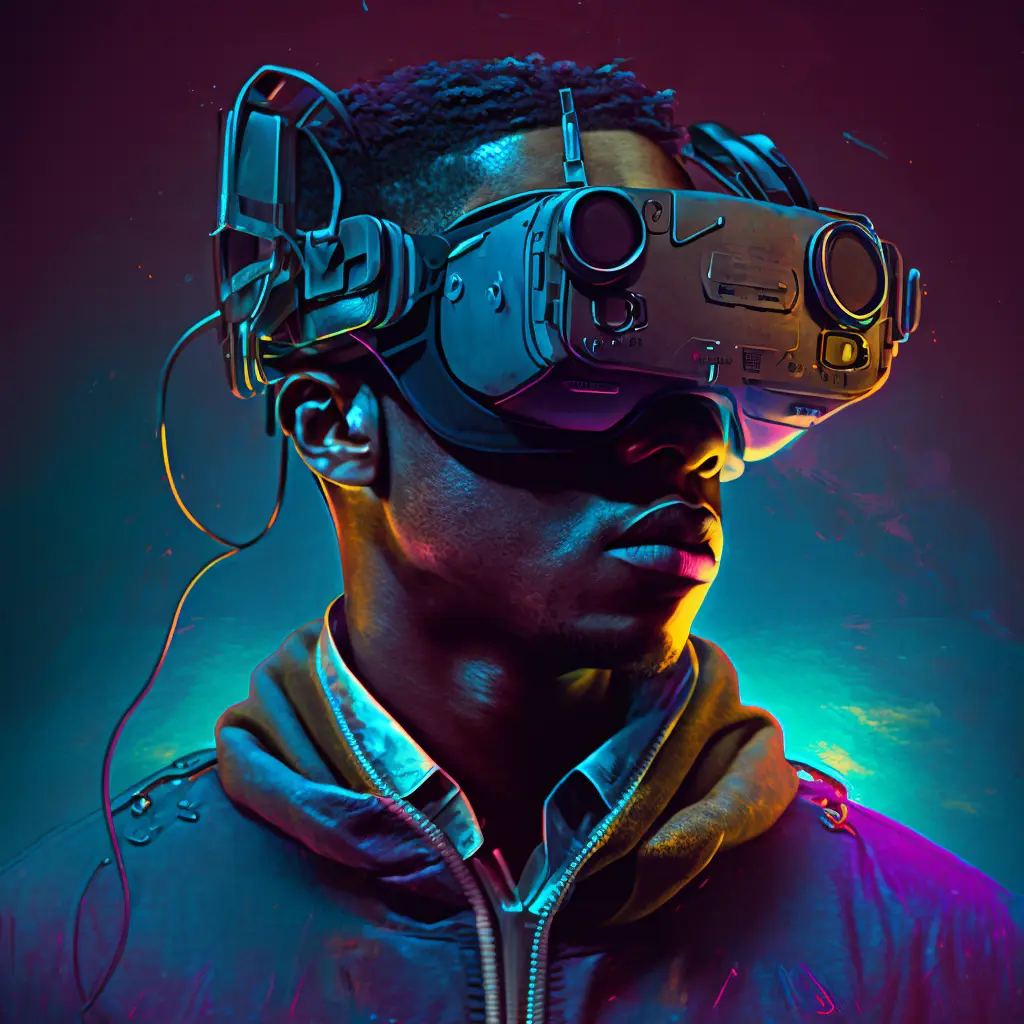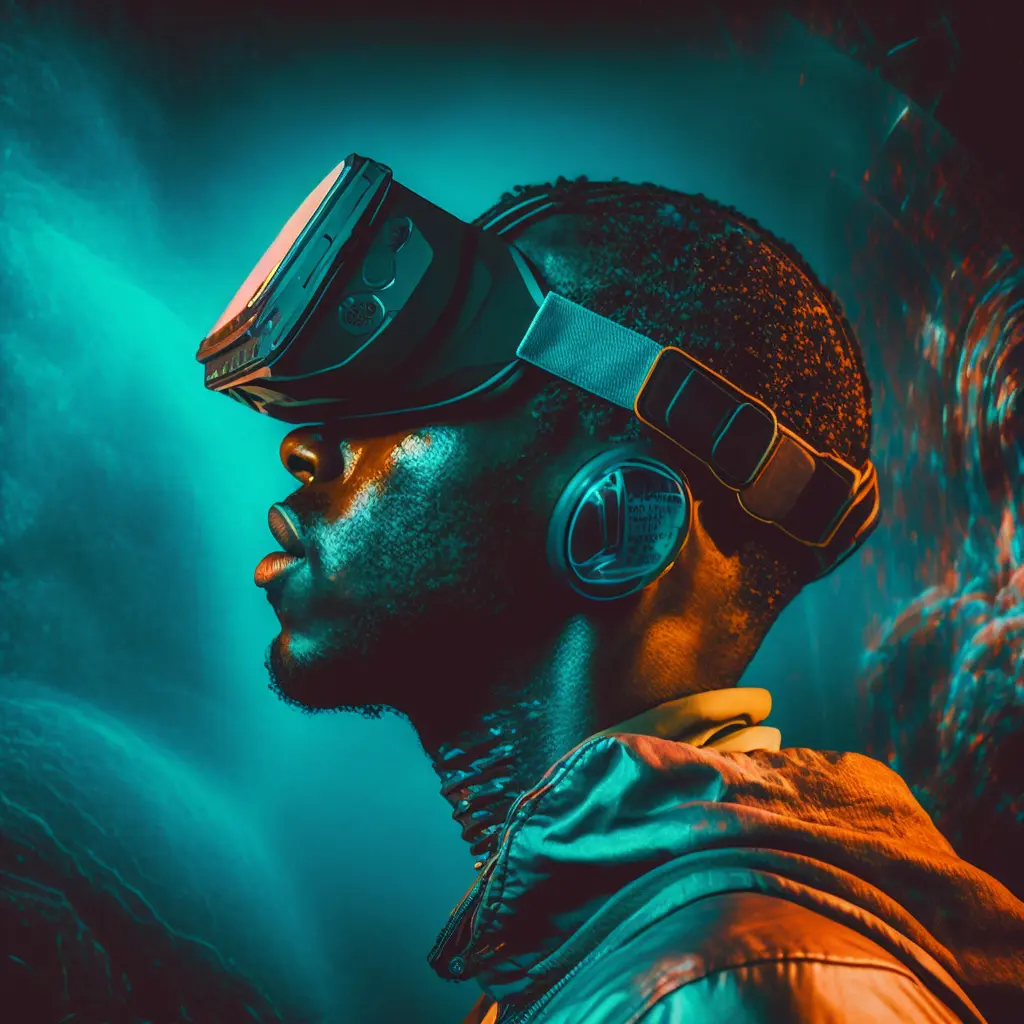Imagine a machine that can grant your heart’s every desire, simulate your most cherished dreams, and offer you a life of unblemished satisfaction. This is the premise of philosopher Robert Nozick’s thought experiment, the “Experience Machine.” As technology rapidly advances, we are faced with the ethical dilemma of potentially creating AI-driven virtual reality systems that provide individuals with entirely simulated, deeply gratifying lives. But should we take this leap into the digital abyss?
The Ethical Dilemma
Picture an iceberg – the tip represents our current understanding of AI and virtual reality, while the vast expanse hidden beneath the surface signifies the unexplored ethical implications of these technologies. As we delve into the depths, it’s crucial to consider the effects on personal autonomy, authenticity, and societal progress.
Personal Autonomy
Personal autonomy is the cornerstone of individuality, the foundation upon which our identities are built. To illustrate, envision personal autonomy as the pilot of an airplane, steering our lives in the directions we choose. An AI-driven virtual reality system could potentially undermine personal autonomy, disconnecting us from our authentic selves. As Virginia Woolf once said, “To be oneself is a supreme achievement.”

Authenticity
The allure of a simulated life raises questions about the authenticity of experiences and the nature of reality. A world created by AI can be compared to a well-crafted painting; while it might evoke feelings and emotions, it can never replace the original. In the words of Albert Einstein, “Reality is merely an illusion, albeit a persistent one.” Can we truly lead fulfilling lives if our experiences are nothing more than skillfully designed illusions?
Societal Progress
Lastly, consider the impact of AI-driven virtual reality systems on societal progress. Picture society as an intricately woven tapestry, each thread representing a unique individual, coming together to form the larger picture. By immersing ourselves in simulated lives, we might inadvertently unravel this tapestry, hindering collective growth and evolution. Marie Curie once remarked, “Nothing in life is to be feared; it is only to be understood. Now is the time to understand more, so that we may fear less.”
Controversial Points
Embracing the Experience Machine could be seen as an act of self-indulgence, akin to choosing to live in a world of dreams and fantasies rather than facing the harsh realities of life. Yet, one could argue that by providing an escape from suffering, AI-driven virtual reality systems would be a force for good.
Moreover, who’s to say that the virtual experiences we create would be any less valuable or authentic than our real-life experiences? After all, as William Shakespeare wrote, “All the world’s a stage, and all the men and women merely players.”
Current VR/AI Advancements
The Experience Machine is no longer a distant philosophical concept; advances in AI and virtual reality technologies are bringing it closer to reality every day. For example, neural interfaces, like Elon Musk’s Neuralink, have the potential to bridge the gap between our brains and computers, providing a seamless integration of virtual experiences. Similarly, sophisticated virtual reality systems such as Oculus Rift and HTC Vive have already transformed the gaming and entertainment industries, blurring the lines between the digital and physical worlds. By examining these cutting-edge technologies, we can better understand the practical implications of Nozick’s thought experiment and ensure that our ethical considerations are grounded in the realm of possibility.
Open Questions
In conclusion, the development of AI-driven virtual reality systems offering simulated, satisfying lives presents a Pandora’s box of ethical concerns. As we weigh the benefits and drawbacks, we are left with questions like:
- Can we truly separate the value of an experience from the authenticity of its origin?
- Would widespread use of the Experience Machine lead to stagnation or even decline in societal progress?
- How can we maintain a balance between embracing technological advancements and preserving human values?
As we strive to answer these questions, we must always remember Thomas Edison’s wise words: “Our greatest weakness lies in giving up. The most certain way to succeed is always to try just one more time.”
